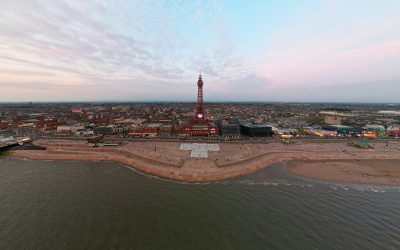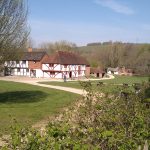Hey, fellow travellers! So you’ve got your campervan and a place in mind, but have you thought about where you are going to sleep? from one traveller to another: Your choice of stopover can make or break your trip. I’ve had mornings where I’ve opened my van door to a gorgeous countryside sunrise and evenings where I’ve stumbled upon a cosy village pub just a stone’s throw away. Picking the right place to park up isn’t just about where you’re going to sleep for the night; it’s also about making memories. So, let’s dive into the best campervan stopover spots and make this an adventure you won’t forget!
Designated Motorhome Parks & Campervan Sites
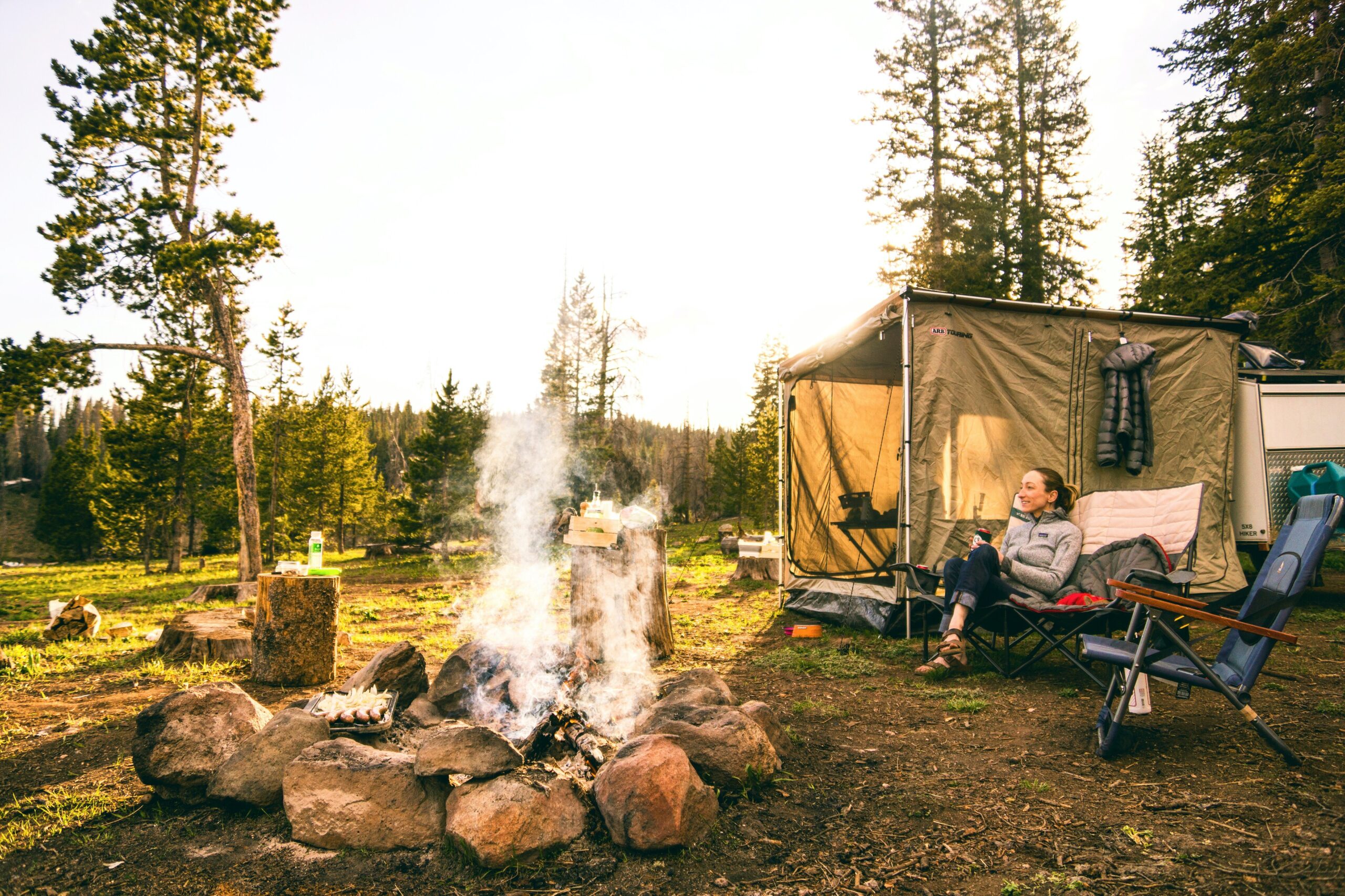
These sites are specially designed to accommodate campervans and motorhomes. They range from basic plots of land with a few amenities to luxurious sites that might even rival some resorts. Here’s a closer look at their features and benefits:
Facilities
Most designated sites provide essential facilities like clean toilets, hot showers, and laundry rooms. This means you can travel without constantly worrying about basic needs.
Electric Hook-ups
Many sites offer electric hook-ups, allowing you to recharge your vehicle’s battery, use appliances, and enjoy some modern comforts.
Safety
Being in a designated area often means there’s some form of security, whether it’s a site manager, locked gates, or CCTV.
Social Aspect
It’s not uncommon to find fellow travellers at these sites. It’s a great way to make friends, share stories, and get recommendations for the road ahead.
Local Amenities
Many campervan sites are strategically located near towns or attractions. This can give you access to shops, restaurants, or sightseeing spots without having to drive far.
Environmentally Friendly
With proper waste disposal systems, these sites ensure that waste is managed correctly, reducing the environmental impact of your stay.
On-Site Extras
Some high-end campervan sites might offer additional amenities like swimming pools, on-site cafes, playgrounds for kids, and even entertainment nights or events.
Peace of Mind
Knowing you have a reserved spot for the night eliminates the stress of searching for a place at the last minute.
While designated motorhome parks or campervan sites typically come with a fee, the comforts, security, and amenities they offer often make them well worth the expense.
Wild Camping/Free Camping
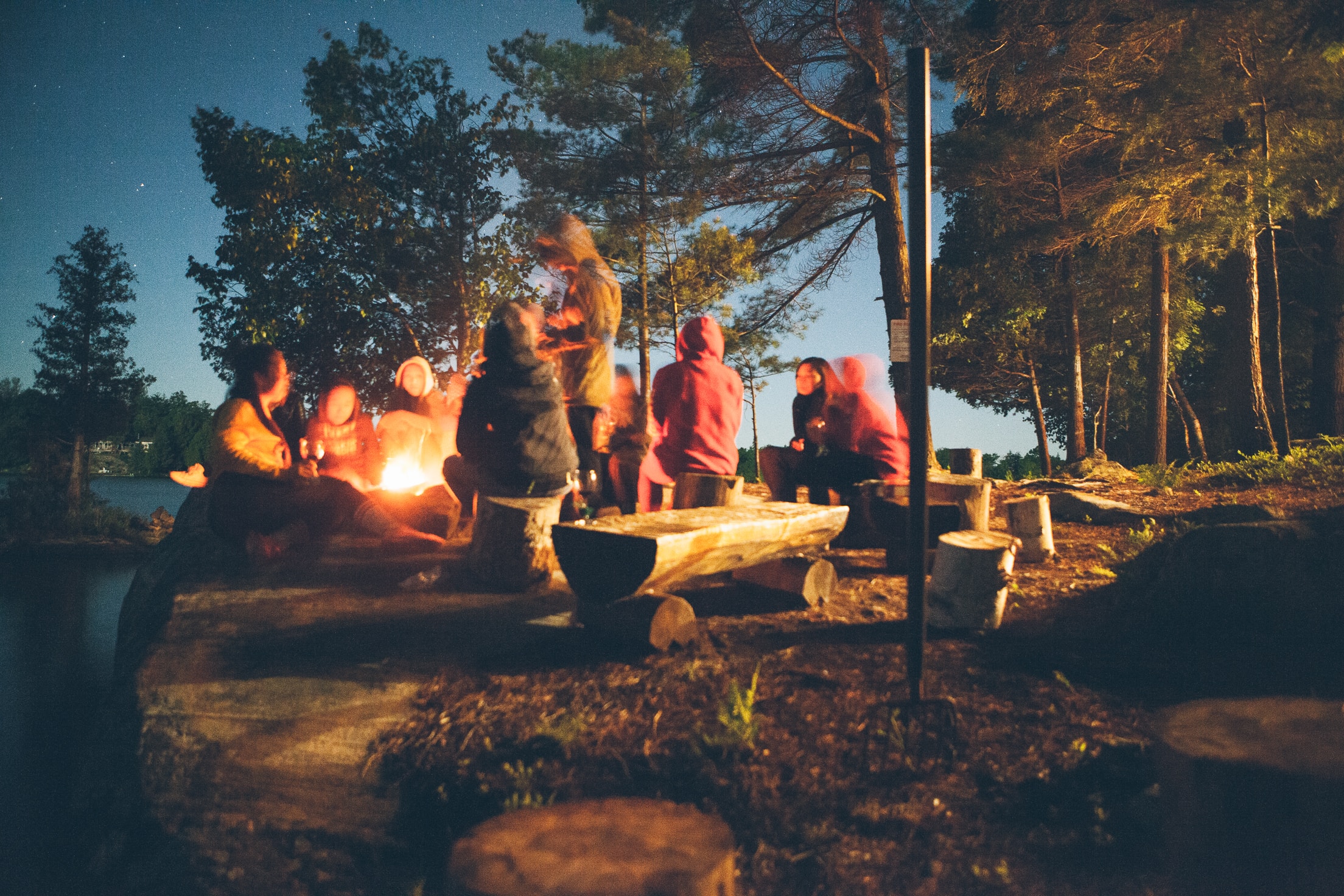
Wild camping, often referred to as free camping, involves setting up your campervan or motorhome in an area that isn’t a designated campsite. It’s a way to truly immerse yourself in nature, often away from the crowds. But like all things, it comes with its own set of advantages and challenges.
Cost-effective
As the name suggests, free camping doesn’t come with the nightly fees associated with official campsites.
Scenic Views
Wild camping often allows you to pick spots that offer breathtaking views, whether it’s atop a cliff, by a serene lake, or amidst dense forests.
Solitude
Away from bustling campgrounds, wild camping can provide a sense of peace and quiet that’s hard to find elsewhere.
Adventure
Finding your own camping spot can be an adventure in itself, giving you a genuine “off the beaten path” experience.
Flexibility
Without having to stick to designated campsite rules or check-in/check-out timings, there’s freedom in your travel schedule.
Lack of Amenities
There’s no guarantee of facilities like toilets, showers, or electric hook-ups, meaning you’ll need to be self-sufficient.
Legal Restrictions
In many parts of the UK, wild camping isn’t technically legal without the landowner’s permission. Always ensure you’re aware of local regulations.
Safety Concerns
Being isolated can sometimes raise security issues. It’s essential to be cautious and ensure the area is safe.
Environmental Impact
Without proper waste disposal systems, there’s a risk of harming the environment if campers don’t strictly follow Leave No Trace principles.
Unpredictable Terrain
Not all spots are suitable for campervans. There’s a risk of getting stuck or damaging your vehicle.
Limited Duration
In some areas, even if wild camping is tolerated, there may be restrictions on how many nights you can stay.
Unforeseen Challenges
Factors like sudden weather changes, wildlife encounters, or issues with the vehicle can become more challenging to manage in remote locations.
Wild camping is a unique experience that can be immensely rewarding for those prepared for its challenges. It offers a sense of freedom that designated sites might not provide, but it’s crucial to always be informed, respectful, and cautious when choosing this option.
Aire de Service
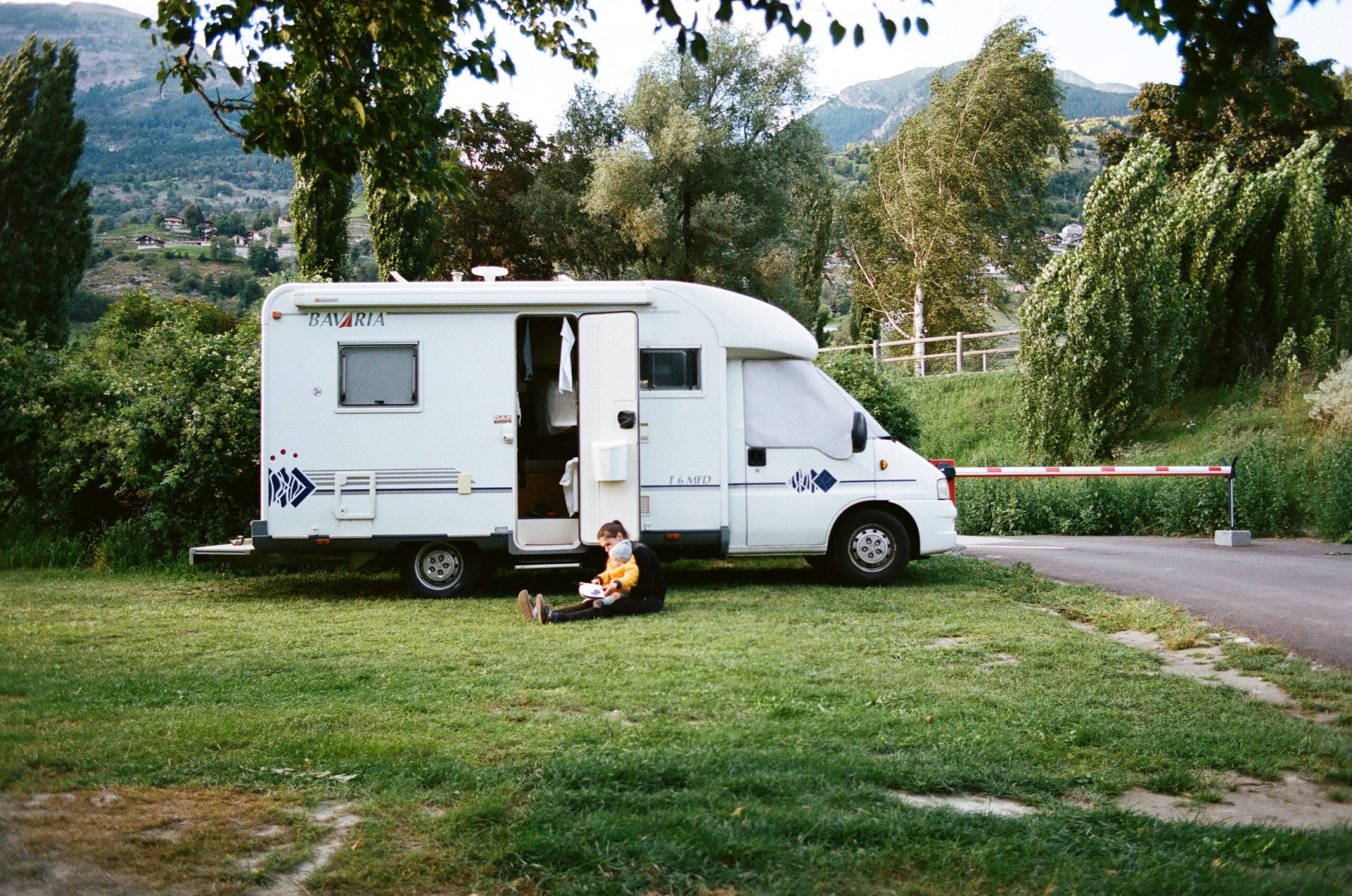
The term “Aire de Service” originates from France and refers to designated areas specifically for motorhomes and campervans. These areas are typically equipped with essential services and facilities to cater to the needs of travellers on the road. They can be found across Europe, with France being particularly well-known for its extensive network of “aires.”
Purpose-Built
Aire de Service areas are designed exclusively for campervans and motorhomes, ensuring the facilities cater directly to these travellers’ requirements.
Basic Facilities
At a minimum, most aires provide facilities for emptying grey water and chemical toilets. Fresh water supplies for refilling tanks are also usually available.
Electric Hook-ups
Some aires offer electric hook-up points, allowing users to recharge their motorhome’s batteries and use electrical appliances.
Cost-Effective
While not always free, aires are typically less expensive than traditional campsites. Some might charge a modest fee, while others might be free.
Short-Term Stays
Aires are mainly intended for short-term stays, often limited to 24-48 hours, making them ideal for stopovers rather than extended stays.
Varied Locations
They can be found in various locations, from city outskirts to rural areas, allowing travellers to choose a spot that suits their itinerary.
Self-Service Stations
Some aires operate with automated service stations, where you can use coins or cards to access services like water or electricity.
Safety
Many aires, especially those in populated areas or near popular tourist spots, offer a reasonable level of safety due to their regular use and, sometimes, surveillance.
No Frills
While aires provide essential services, they usually don’t offer additional amenities like showers, laundry, or recreational areas, which you might find in full-service campgrounds.
Aire de Service is a fantastic option for those touring Europe in a campervan or motorhome. It provides essential services at convenient locations, making it easier for travellers to maintain and refresh their vehicles without the need for a full campsite. However, always check local guidelines and regulations, as rules for usage can vary between locations.
Farm Stops and Winery Stops
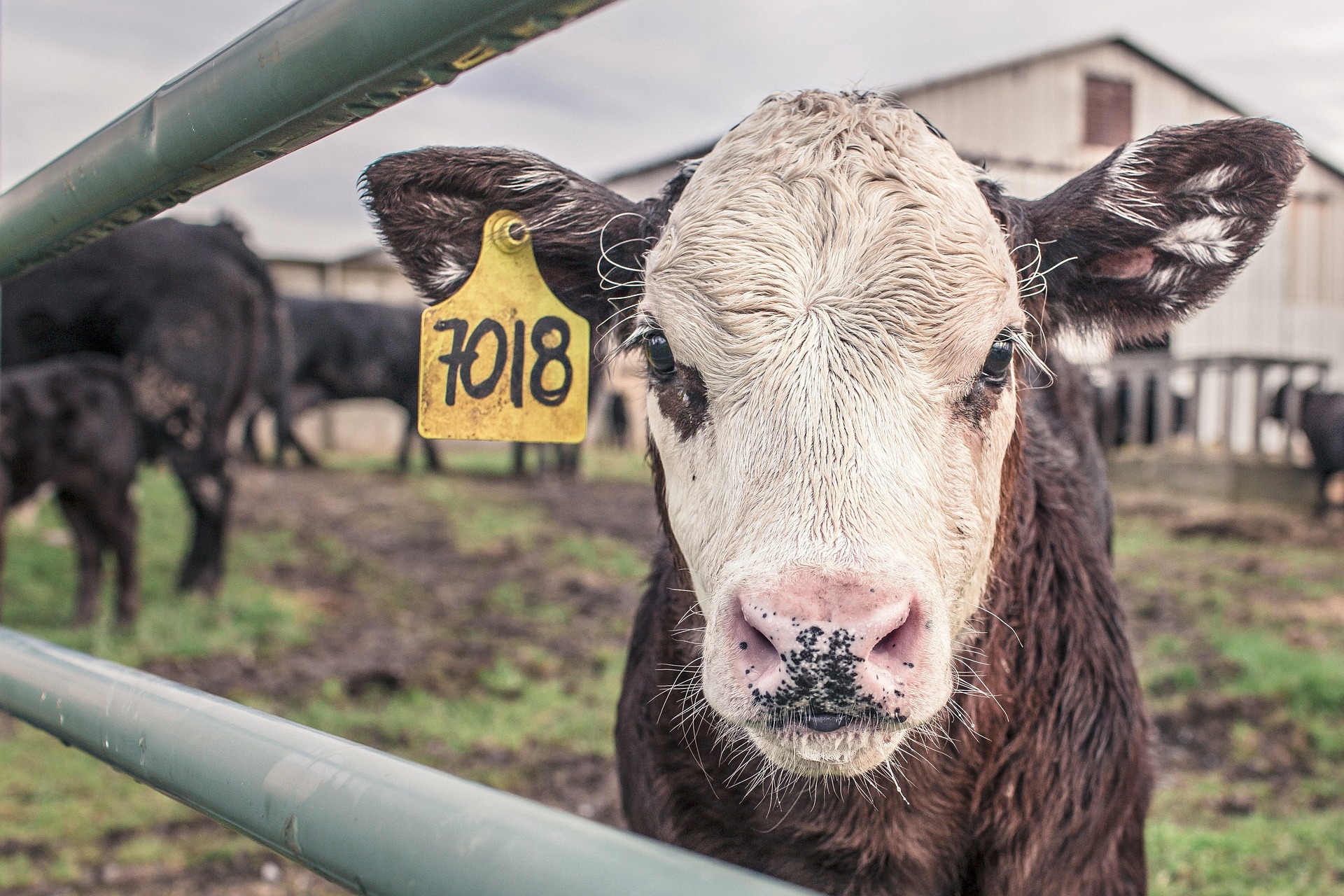
Farm stops and winery stops offer a unique opportunity for campervan and motorhome travellers to stay in picturesque and often educational settings. These stops are typically working farms, vineyards, or orchards that have allocated spaces for motorhomes, offering a distinctive experience compared to traditional campsites or other types of stopovers.
Scenic Surroundings
These stops are often set amidst rolling countryside, vineyards, or productive farmland, providing travellers with beautiful views and peaceful settings.
Local Produce
One of the key attractions is the opportunity to purchase fresh, local produce directly from the source. This might include fruits, vegetables, eggs, dairy, or, in the case of wineries, bottles of wine.
Educational Opportunities
Many farms and wineries offer tours or insights into their operations. This is a chance to learn about winemaking, farming techniques, and local agricultural practises.
Community Feel
Staying at such places often fosters a sense of community. Farmers or vintners might share stories or insights, and fellow travellers might gather for tastings or communal meals.
Basic Facilities
While some stops might offer basic amenities like water refills or waste disposal, many won’t have the full range of facilities you’d find at a designated campsite. It’s essential to check in advance and be prepared.
Modest Fees
Some stops might be free, hoping you’ll purchase their products. Others might charge a small fee, but it’s generally less than a traditional campsite.
Limited Duration
Similar to other specific stopovers like aires, farm and winery stops are intended for short stays, often just a night or two.
Booking in Advance
Depending on the popularity and size of the stop, it might be advisable to book in advance, especially during peak seasons.
Respect the Environment
Remember, these stops are working establishments. It’s crucial to respect their property, avoid disturbing any ongoing operations, and always leave the place as you found it.
Farm and winery stops offer a chance to immerse oneself in the local culture and landscape in a way few other stopovers can match. It’s a blend of relaxation, education, and gastronomic delights that many travellers cherish. Always remember to inquire about the available facilities and any house rules before settling in to ensure a pleasant stay for both you and your hosts.
Car parks or Rest Areas
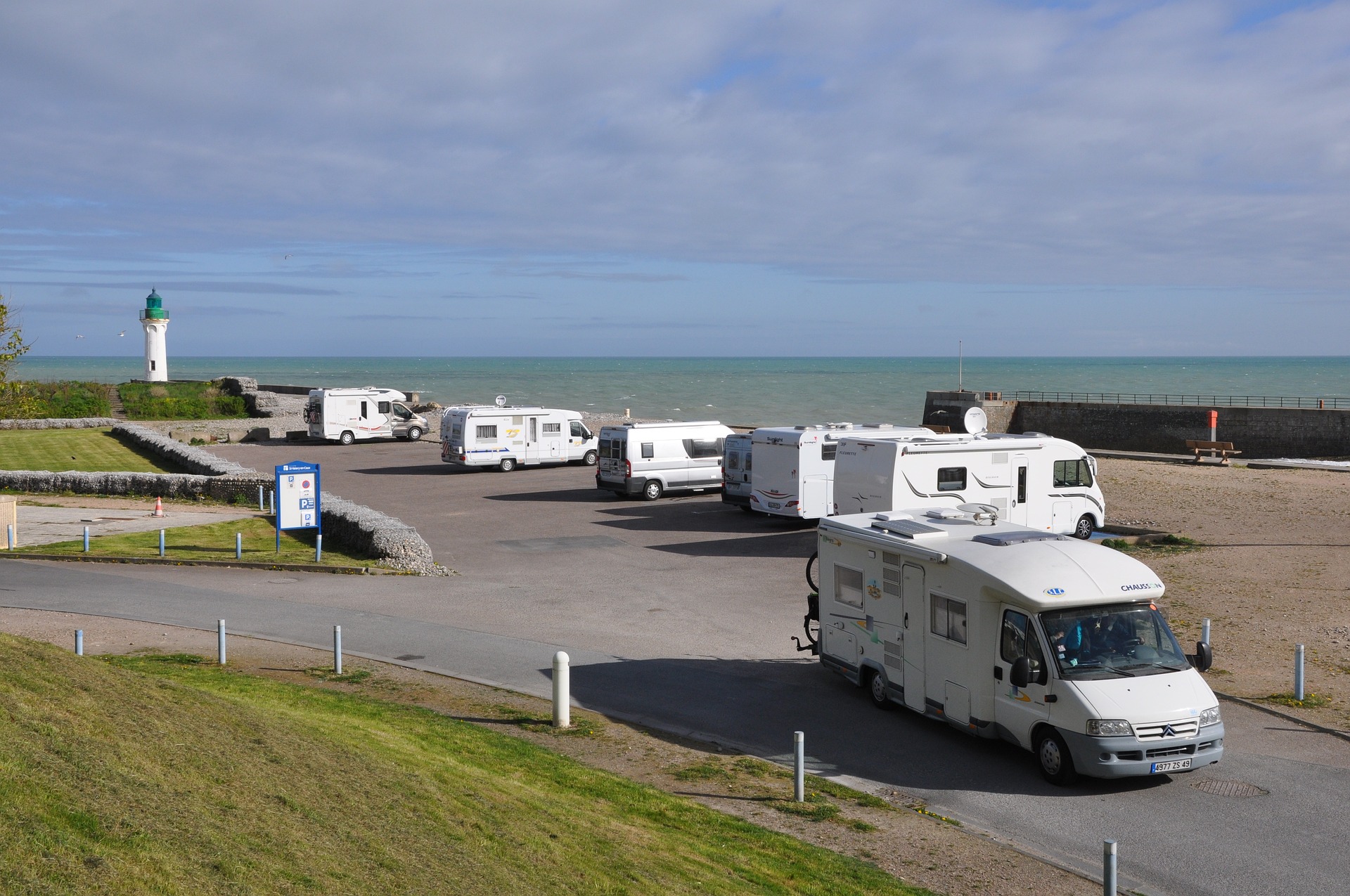
Car parks and rest areas can often serve as convenient stopover points for campervan and motorhome travellers, especially during long drives. However, they come with their own set of regulations and unwritten etiquettes that travellers should be aware of to ensure a smooth and respectful stay.
Duration of Stay
Many car parks and rest areas have time limits. Some might allow for a few hours, while others might permit overnight stays. It’s crucial to check signage or ask local authorities.
Prohibited Areas
Not all car parks or rest areas will be motorhome-friendly. Some may have height restrictions, or specific areas may be designated as “No Overnight Parking.”
Local Laws
Depending on the region or country, there might be local laws or by-laws restricting overnight stays in car parks or rest areas.
Amenities Usage
If the rest area has facilities like toilets or picnic spots, they might close after certain hours, so be prepared.
Discretion
If you’re staying overnight, it’s often best to be discreet. Avoid setting up chairs, tables, or awnings, which might give the appearance of ‘camping’ rather than ‘parking’.
Noise Levels
Be mindful of noise, especially during the night. Keep music, conversations, and any other activities at a volume that won’t disturb others.
Waste Management
Always dispose of your waste appropriately. If there aren’t facilities available, take your rubbish with you and dispose of it at the next suitable location.
Space Usage
If the car park or rest area is busy, ensure you’re not taking up more space than necessary. Position your vehicle so that others can also use the area.
Safety First
Always lock your vehicle and keep valuables out of sight. Rest areas, especially those on motorways, can sometimes be targets for opportunistic crimes.
Support Local Businesses
If you’re using a commercial car park (e.g., a supermarket or shopping centre), consider buying something from them. Even a small purchase can show appreciation for using their facilities.
Late Arrival and Early Departure
If your staying overnight, it’s courteous to arrive late and leave relatively early in the morning, freeing up space for others and moving on before the area gets too busy.
Engage with Others
If approached by security or locals, be polite and be prepared to move on if asked. A friendly demeanour can often make a difference in how you’re perceived.
Using car parks or rest areas can be a convenient way to rest and regroup during your travels. However, always ensure you’re aware of local regulations and adhere to etiquette to maintain a positive image of the campervan and motorhome community.
Finding the Perfect Stopover: Apps and Websites
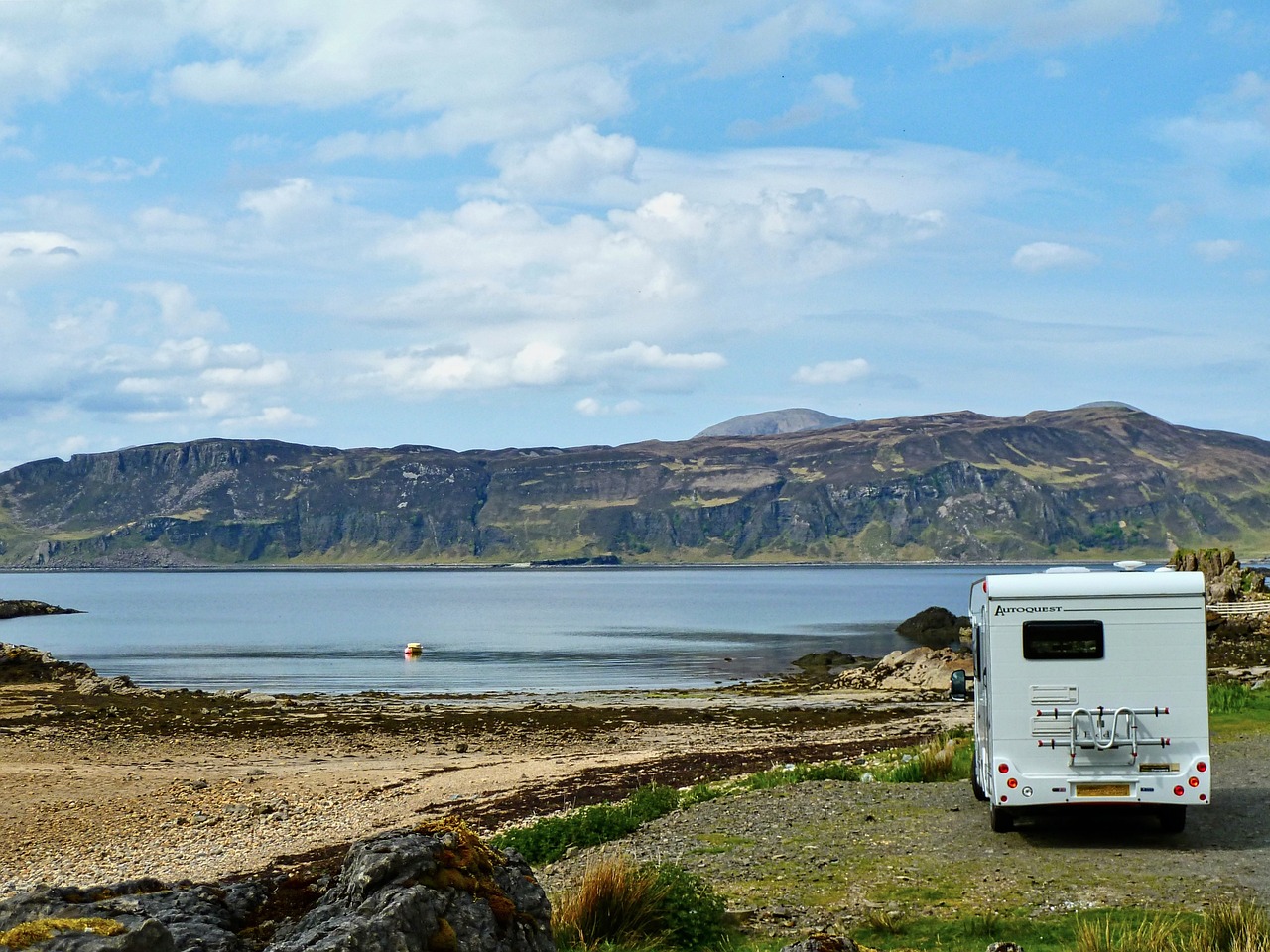
When on the road in a campervan or motorhome, knowing where to park for the night or simply to rest is essential. Thanks to technology, finding the perfect stopover has become more accessible and efficient. Below are some recommended apps and websites to help you find the best locations:
Apps
Park4Night
Popular in Europe, this app offers a vast database of places for motorhomes, from wild camping spots to fully-equipped campsites.
CamperContact
This app provides detailed information about motorhome parking spots and campsites in over 50 countries.
WikiCamps
A user-generated database predominantly used in countries like Australia, the UK, the USA, and Canada, it provides comprehensive listings of campsites, caravan parks, day stops, and more.
iOverlander
Especially popular with overland travellers, this app offers a global database of places to sleep, from campsites to parking lots and everything in between.
CampingCard ACSI
Useful in Europe, this app gives you access to a database of inspected campsites where you can stay at reduced rates during the off-season.
Websites
Motorhome Republic
This platform offers a comparison of campervan and motorhome rentals but also provides valuable resources and guides on stopover places.
Brit Stops
Specifically for the UK, this guide (available as a book or online resource) lists hundreds of farm shops, country pubs, vineyards, and other locations where you can stay for free.
Aire de Service
This website is dedicated to listing Aire de Service stops, predominantly in France but also covering other parts of Europe.
CamperMate
Primarily for New Zealand and Australia, this website (and its app counterpart) gives detailed listings of campsites, public restrooms, dump stations, and more.
AllStays
Focusing mainly on North America, it lists a variety of lodging options, from wild camping to RV parks, and even includes low-clearance bridges, making route planning easier.
When using these apps and websites, always consider reading user reviews or recent comments. They can provide up-to-date information about the conditions, regulations, or any changes regarding the stopover spots. Additionally, remember that while technology is an incredible tool, local advice or even a simple paper map can sometimes lead to the most memorable stopovers.
Local Regulations and Etiquette
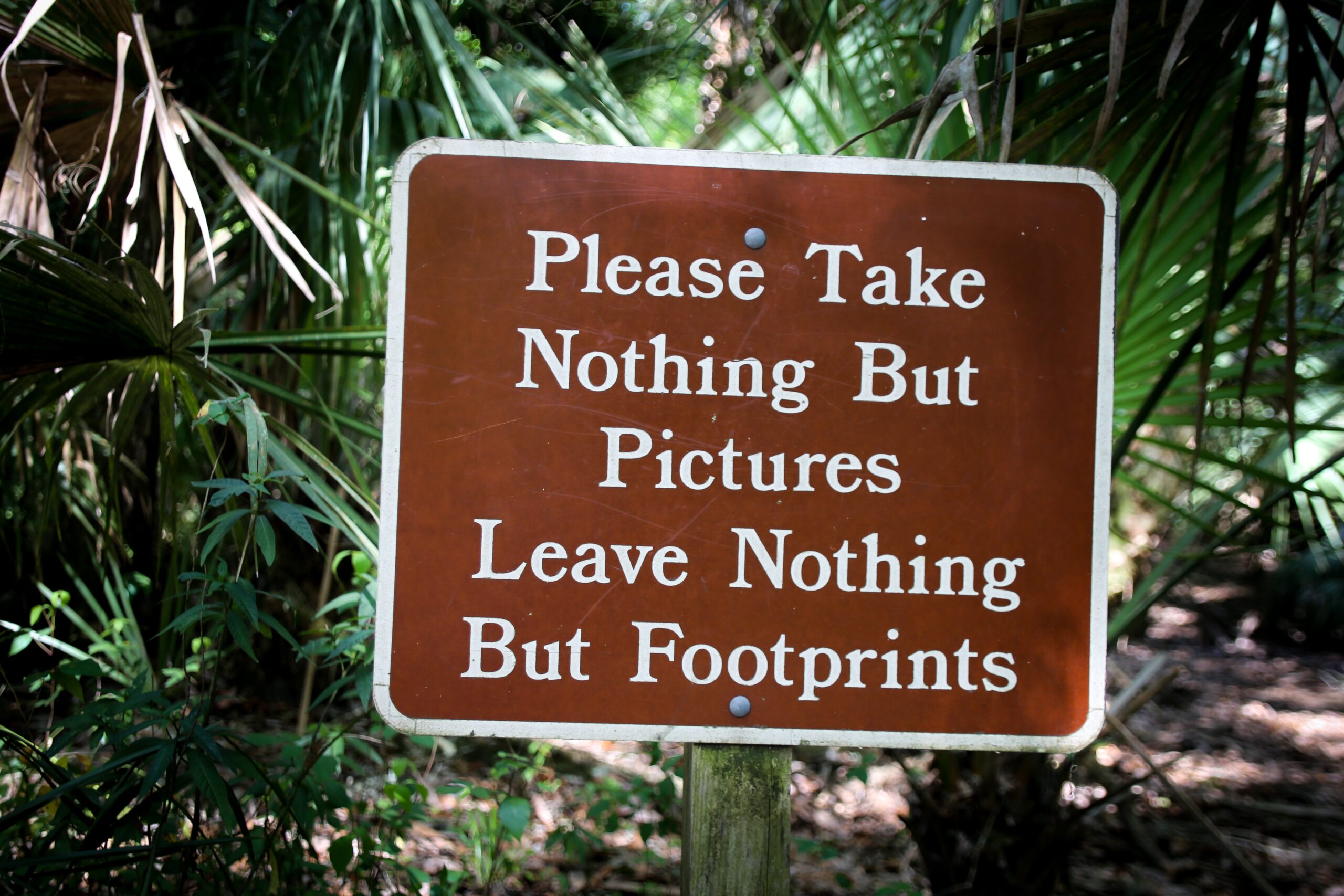
Navigating the open road in a campervan or motorhome promises a sense of freedom and adventure. However, that freedom comes with responsibilities. As travellers, it’s paramount to understand and respect the local regulations and etiquette of the places we visit. Here’s why adhering to these rules is so crucial:
Preservation of the local environment
Many camping and stopover locations are in areas of natural beauty or ecological significance. Respecting regulations ensures these places remain pristine for future generations.
Safety Concerns
Local regulations, especially in camping areas, are often designed with safety in mind. This could range from guidelines about where it’s safe to park due to factors like tide levels on beachfronts or proximity to cliff edges to more general rules such as campfire regulations in areas prone to wildfires.
Community Relationships
Demonstrating respect for local customs and etiquette fosters positive relationships between the travelling community and locals. Ignoring rules can strain these relationships, potentially leading to stricter regulations or even bans on motorhome stopovers in certain areas.
Financial Penalties
Fines or penalties for violating local rules can be hefty. Adhering to regulations not only avoids unnecessary expenses but also ensures you’re not contributing negatively to the perceptions of the campervan and motorhome community.
Cultural Respect
As travellers, we’re ambassadors for our broader community. Respecting local cultures, traditions, and etiquette is a fundamental part of travelling respectfully and responsibly.
Enhanced Travel Experience
Adhering to rules and etiquette often enhances the travel experience. By camping in designated areas or respecting quiet hours, for example, we can enjoy a peaceful night’s rest and allow others the same privilege.
Positive Reputation
As the saying goes, “It takes years to build a reputation and only moments to destroy it.” The same applies to the campervan and motorhome communities. A few irresponsible travellers can tarnish the reputation of many, leading to mistrust and stricter regulations.
Long-Term Access
Respecting rules ensures that beautiful spots remain accessible to the community. When areas are frequently abused or rules are flouted, there’s a higher chance that local authorities may restrict access altogether.
Peace of Mind
Knowing that you’re abiding by local regulations and etiquette provides peace of mind. You can enjoy your journey without the constant worry of potentially violating rules or upsetting the local community.
In essence, while the open road may beckon with promises of freedom and discovery, it’s our responsibility as travellers to balance that freedom with respect and responsibility. Adhering to local regulations and etiquette ensures that we leave a positive footprint behind, ensuring future travellers can enjoy the same experiences we cherish.
Safety and Security
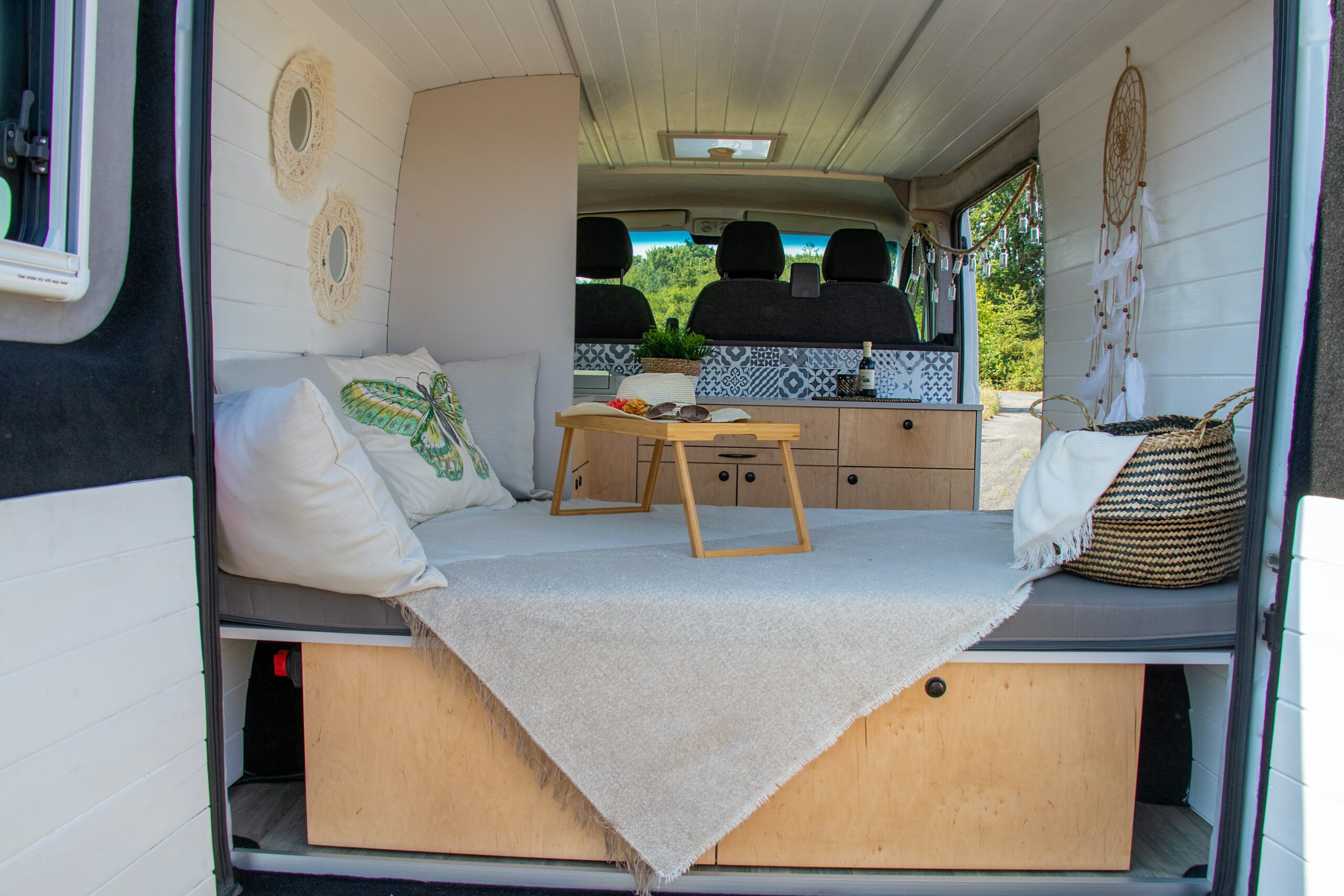
Ensuring the safety and security of both yourself and your campervan or motorhome should be a top priority when choosing and settling into a stopover. Here are some essential tips to help you have a safe and worry-free experience:
Research in Advance
Before heading to your chosen stopover, research the area. Familiarise yourself with any known security issues or incidents reported by other travellers on apps, websites, or forums.
Choose Well-lit Areas
If stopping in urban or public areas, aim for well-lit spots. A bit of light can deter potential thieves or troublemakers.
Lock Up
Always lock all doors, windows, and compartments, even if you’re just stepping out for a moment. If your vehicle has an alarm, ensure it’s activated.
Stay Discreet
If you’re wild camping or parking in a more public space, try to be as discreet as possible. Avoid displaying valuable items, and keep the inside of your campervan or motorhome tidy to minimise attraction.
Know Your Neighbours
If you’re in a campsite or designated area with other vehicles, get to know your neighbours. There’s safety in numbers, and having a friendly rapport can mean extra eyes looking out for any unusual activity.
Avoid Isolation
While the allure of a secluded spot can be tempting, complete isolation can make you an easy target. Aim for a balance between solitude and safety.
Secure Valuables
Use a small safe or hidden compartment inside your vehicle to store valuables such as passports, money, and electronics when they’re not in use.
Stay Alert
If something doesn’t feel right about a place, trust your instincts. It’s always better to move on to another location than to risk an unsafe situation.
Emergency Contacts
Keep a list of emergency contact numbers for the area you’re in. This should include local police, medical facilities, and any roadside assistance you might have.
Avoid Risky Areas
Stay clear of areas known for high crime rates or other safety concerns. Local advice, guidebooks, or online communities can provide insights on regions to avoid.
Level Ground
Ensure that you’re parked on stable, level ground. This is not just for your comfort but also to ensure you can move your vehicle quickly in case of an emergency.
Regular Vehicle Checks
Regularly inspect your vehicle to ensure it’s in good working order. A reliable vehicle can be your quickest means of getting out of a tricky situation.
Have an Exit Strategy
Always park in a way that allows for a quick and easy departure. Avoid being hemmed in, and be familiar with the local area’s exits and routes.
Remember, the key to a successful and enjoyable trip in a campervan or motorhome is to blend preparation with awareness. By taking a few extra precautions and remaining vigilant, you can ensure your stopovers are both safe and memorable.
Final thoughts
Hitting the road in a campervan or motorhome is the dream, isn’t it? The promise of endless horizons, the thrill of discovering hidden gems, and that undeniable sense of freedom are what we are all looking for, and where we choose to stop and rest makes all the difference.
It’s not just about finding that Instagram-worthy spot (though who can resist a good sunset shot?). It’s about being a good guest. It’s popping by a new place and saying, “Hey, I respect your rules and your ways.” And let’s be honest, no one wants to wake up to an angry knock or a hefty fine.
The choices we make and the places we rest leave an imprint. Not just in our memories, but in the communities and spots we visit. We want to be remembered, but for the right reasons. A friendly chat, a wave to a neighbour, maybe even a shared cuppa—not as that traveller who overstayed their welcome or didn’t play by the rules.
And, thankfully, we’re not navigating all of this blindly. With so many amazing apps and websites to guide us, finding a safe and snug spot for the night is just a few clicks away, making it simpler than ever to make choices that keep us and our surroundings happy.
So, next time you’re looking for your next adventure, remember: it’s not just about the journey or the destination. It’s also about where you pause, rest, and reconnect. Choose wisely, with heart and thought, and every stop will be another delightful tale in your grand road trip story. Safe travels, and may your heart always guide your wheels.
You may like
Urbany Hostel London
There are many reasons why London is one of the most famous and stunning cities in the world. It has some of the world's finest eateries, watering holes, and tourist hotspots, but it also has more than 2,000 years of history waiting to be explored in its world-class...
Portsmouth Travel Guide
Visit Portsmouth - Our travel guide to visiting this great waterfront city. This article contains affiliate links. To find out more about affiliate links click here. Where is Portsmouth? Portsmouth is an island city, as well as a port, that is located in the county of...
Blackpool Travel Guide
Visit Blackpool - our travel guide to visiting this historic seaside town. This article contains affiliate links. To find out more about affiliate links click here. Where is Blackpool? Blackpool is a large seaside town in Lancashire, England. It can be found on the...



